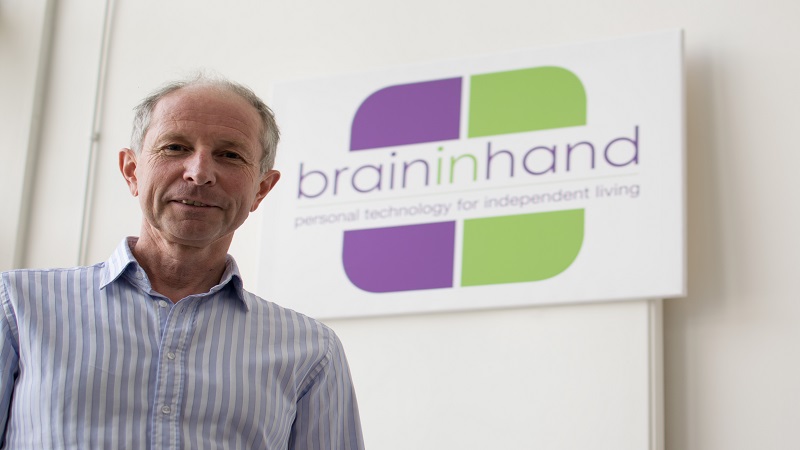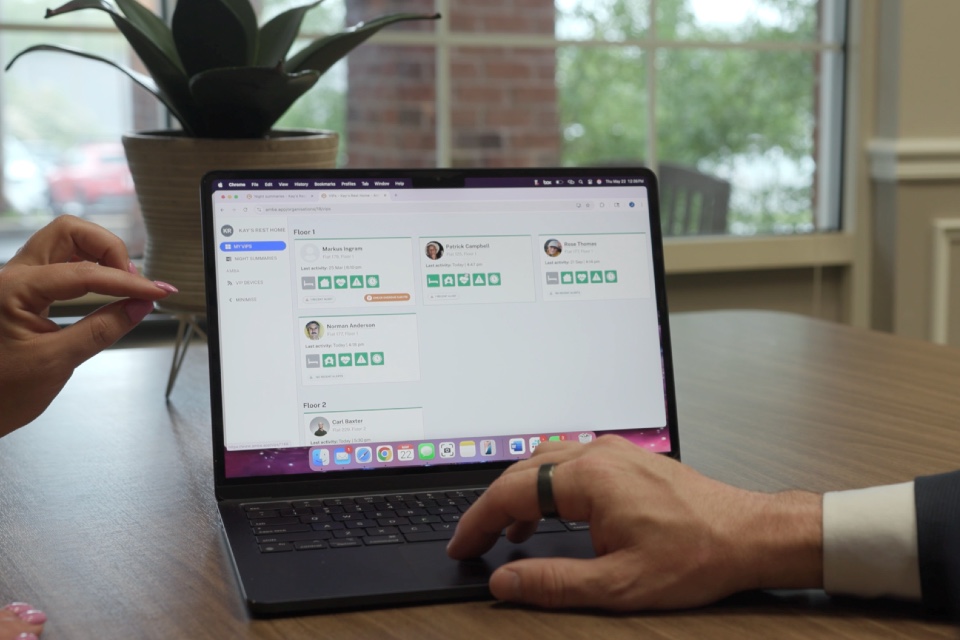Mobile phones are now ‘part of the furniture’, we use them in every part of our lives – to connect, to shop, to bank. But the use of mobile software within support organisations is very much in its infancy. Yet those taking the leap are seeing significant benefits.
Brain in Hand was formed to embrace the potential of mobile and help people with autism, mental health conditions and brain injuries to become more independent. The system supports users to put into practice their own solutions to any barriers they are facing, whether it’s about sustaining a place at college, making and maintaining friendships, getting a job or anything else that makes life feel rich and full.
It prompts support professionals to adopt a growth mind set and focus on what people can do, rather than what they can’t. Working collaboratively with people with autistic spectrum conditions and learning disabilities, the question should not be “how can I solve this problem for you?” but “How can we work together to solve this problem?”
Brain in Hand is a cloud-based solution that enables individuals to access a rich set of personalised pre-planned coping strategies from their phone, set out their day so that they don’t forget or miss activities, monitor their anxiety levels and request urgent help when needed. It also enables support staff to monitor usage, trends and success of interventions from a secure website. It’s based on well-established therapeutic principles such as CBT, solution focussed therapy and recovery based rehabilitation allowing the learning from these approaches to be turned into a set of patient centred strategies.
We are now working with local authorities across the UK as well as leading voluntary sector providers who are adopting the technology and integrating the system into existing provision of care. Organisations are finding that such assistive technology is leading to improved outcomes across a number of areas, in particular:
- Increased confidence and independence
- Improved emotional regulation
- Improved ability to problem solve, especially when anxious
- Increasing engagement in leisure activities and a reduction in isolation
- Gaining and sustaining employment, education or training
- Avoiding carer breakdown
- Improvement in the self-management of medication
- Early intervention; avoiding crises and prolonging recovery
As individuals gain greater independence, support organisations also experience significant cost savings ranging from between £1,500 and £15,000 per person each year.
But technology cannot work alone. Change and improvements are only seen when people and technology work together. This can be tough, especially in an environment that has traditionally been light on technology. Adoption is most effective if it’s championed from the top, supported with a change in culture, encouraging people to foster independence and embrace new technology.
When I hear about the achievements made, of people achieving things for the first time – be it getting dressed, travelling independently or even starting work, I am proud of the technology we have developed and inspired for the future. A future when technology helps care providers and put independence within reach for individuals.
Learn more about Brain in Hand here
David has been a director of several health care companies, advised on social enterprise and innovation and is an associate of the Social Research Unit, a charity dedicated to improving the wellbeing of children.






